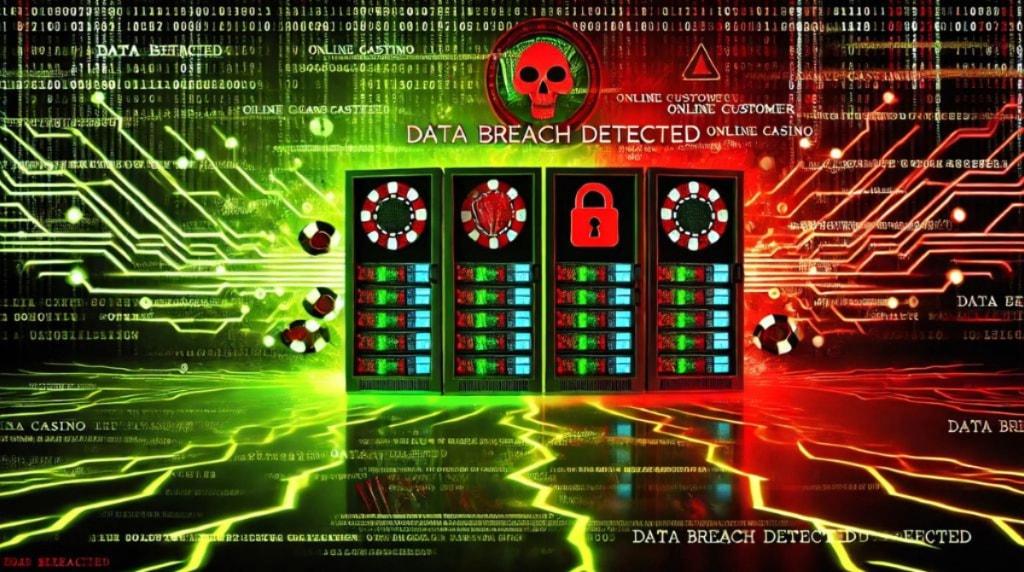Attacking IGT: The Company’s Tech Infrastructure Has Been Disrupted
The gaming industry is grappling with another significant cybersecurity incident, as International Game Technology (IGT) has confirmed a cyberattack targeting its systems. The breach, disclosed on November 17, 2024, has disrupted portions of the company’s internal information technology infrastructure, sparking widespread concern across the sector.

Hackers have attacked London-based gaming technology provider IGT.
Hackers Continue to Target Gaming Platforms
IGT’s slot machines and digital gaming platforms are foundational to the casino industry, featuring iconic titles like Cleopatra that dominate casino floors and online gaming markets alike. The company acknowledged in its official 2024 Q3 filing that an unauthorized third party had gained access to some of its systems. While the full extent of the intrusion remains unclear, IGT has emphasized its commitment to minimizing operational disruptions through its established business continuity protocols.
“IGT is actively communicating with its customers and stakeholders to address any potential concerns,” the statement read. “Where feasible, we have implemented alternatives for certain operations to ensure continuity of service.”
The incident has interrupted aspects of IGT’s internal systems, yet the company reassured the public that its player-facing platforms, including online games, remain unaffected.
To date, there is no evidence suggesting that games or customer-facing systems have been compromised, a point IGT underscored in its Friday update. However, the company has initiated an emergency security plan, with some systems reportedly offline as a precaution.
Rising Cyber Threats in Gaming
The attack on IGT comes amid a growing wave of cybersecurity threats targeting the gaming and gambling sectors. High-profile breaches in 2023, such as those suffered by Caesars Entertainment, MGM Resorts, and the Ohio Lottery, highlighted the industry’s vulnerability to sophisticated cybercriminals.
These incidents, often involving ransomware, have disrupted operations, leaked sensitive data, and caused significant financial losses for the affected organizations.
In the case of MGM Resorts, the attack led to weeks of operational downtime, affecting everything from slot machines to hotel check-ins. Caesars faced a similar fate, with hackers reportedly demanding and receiving multimillion-dollar payouts to restore systems and prevent the release of sensitive data.
The Ohio Lottery, another victim of a ransomware attack in 2023, faced public scrutiny as it worked to recover from the incident. These events served as stark reminders of the urgent need for robust cybersecurity measures in the gaming industry—a warning that now feels prescient in light of IGT’s current crisis.
Broader Implications of Cyber Attacks on Gaming Apps & Casinos
As one of the world’s most prominent suppliers of gaming technology, IGT’s breach raises questions about the potential ripple effects on the industry. The company has not disclosed how many systems were affected nor whether the breach extends to its international operations. The lack of clarity has fueled speculation among stakeholders about the possible scope of the attack.
The gaming industry, which relies on complex interconnected systems and online platforms, is particularly susceptible to cybersecurity risks. Companies like IGT manage vast amounts of data, ranging from proprietary technology to sensitive customer information, making them lucrative targets for cybercriminals.
This breach underscores the need for a sector-wide reassessment of cybersecurity protocols as companies work to safeguard against similar incidents. For now, IGT’s emergency response plan aims to limit disruptions while its security teams assess the situation. However, the incident underscores the mounting challenges faced by gaming companies in an era where cyber threats are becoming more frequent and sophisticated.
Exposure of Gaming Customer Data
As investigations into the IGT cyberattack continue, the gaming industry must reckon with its exposure to such risks. While no gaming company is immune to cyber threats, the frequency and impact of these incidents signal the need for a unified approach to cybersecurity.
For players and partners, IGT’s reassurance that customer-facing systems remain unaffected may provide some immediate relief. Yet the broader implications of this breach will likely resonate across the industry, prompting renewed investment in cybersecurity infrastructure and policies to defend against an ever-evolving digital threat landscape.



